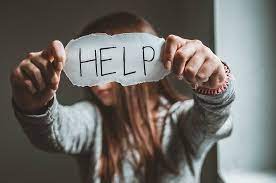The Impact of Domestic Violence on Families and Communities
Domestic violence is a pervasive issue that affects individuals, families, and communities across the globe. It encompasses a range of abusive behaviors that are used by one partner to gain power and control over another in an intimate relationship. This form of violence can have devastating consequences that extend far beyond the immediate victims.
Within families, domestic violence can create a cycle of trauma that reverberates through generations. Children who witness or experience abuse in the home are more likely to suffer from emotional and psychological problems, as well as engage in violent behavior themselves. This perpetuation of violence can lead to a breakdown in family structures and relationships, with long-lasting effects on all members involved.
Furthermore, the impact of domestic violence extends beyond individual households to entire communities. Communities affected by high rates of domestic violence often experience increased strain on social services, healthcare systems, and law enforcement agencies. The economic costs associated with responding to domestic violence incidents are substantial, placing a burden on public resources and diverting attention from other pressing issues.
Addressing domestic violence requires a multifaceted approach that involves prevention, intervention, and support services for survivors. Education about healthy relationships and early intervention programs can help break the cycle of abuse before it escalates. Providing safe spaces for survivors to seek help and access resources is crucial in empowering them to leave abusive situations and rebuild their lives.
As members of society, we all have a role to play in combating domestic violence. By speaking out against abuse, supporting survivors, and advocating for policies that prioritize the safety and well-being of all individuals, we can work together to create communities free from the scourge of domestic violence.
It is only through collective action and unwavering commitment that we can hope to eradicate domestic violence and create a safer, more compassionate world for ourselves and future generations.
Understanding Domestic Terminology: Commonly Asked Questions Explained
- What does it mean when someone says they are domestic?
- What is the terms of domestic?
- What does it mean when someone is having a domestic?
- What does it mean for someone to be domestic?
What does it mean when someone says they are domestic?
When someone says they are “domestic,” it typically refers to their inclination or ability to handle tasks and responsibilities related to home life and household management. Being domestic often implies skills in cooking, cleaning, organizing, and caring for a home and family. It can also suggest a preference for spending time in domestic settings rather than engaging in activities outside the home. Embracing a domestic lifestyle can bring a sense of comfort, fulfillment, and pride in creating a nurturing environment for oneself and loved ones.
What is the terms of domestic?
The term “domestic” typically refers to matters or situations that pertain to the home, family, or household environment. In the context of domestic relationships, it often relates to issues such as domestic violence, domestic partnerships, and domestic responsibilities within a family unit. Understanding the terms of domestic involves recognizing the dynamics and interactions that occur within intimate relationships and households, highlighting the importance of promoting safety, respect, and well-being in these settings.
What does it mean when someone is having a domestic?
When someone is said to be “having a domestic,” it typically refers to a situation involving a heated argument or conflict between individuals in a domestic relationship, such as partners, family members, or housemates. This term is commonly used in informal language to describe a situation where emotions are running high and tensions are escalated within the confines of a home or private setting. “Having a domestic” can encompass various forms of disputes, ranging from verbal disagreements to physical altercations, and often indicates a breakdown in communication and harmony within the household. It is important to address such situations with sensitivity and seek appropriate support or intervention to ensure the safety and well-being of all parties involved.
What does it mean for someone to be domestic?
Being domestic typically refers to a person’s inclination or ability to manage household tasks, such as cooking, cleaning, and organizing, with a focus on creating a comfortable and nurturing living environment. Someone who is described as domestic may excel in activities related to home care and maintenance, demonstrating skills in meal preparation, housekeeping, and overall domestic management. This term often conveys a sense of being adept at creating a warm and inviting atmosphere within the home, where family members or residents can feel cared for and supported.

